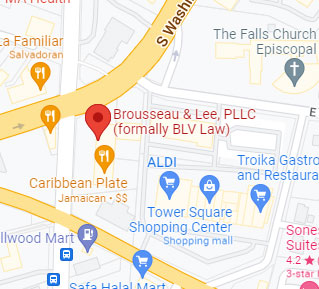 Firstly, when a divorce is granted or divorce proceedings are pending, individuals should look closely at the allegations made in a divorce petition as it is not uncommon for the US citizen spouse to allege facts that may reflect poorly on the validity of the marriage.
Firstly, when a divorce is granted or divorce proceedings are pending, individuals should look closely at the allegations made in a divorce petition as it is not uncommon for the US citizen spouse to allege facts that may reflect poorly on the validity of the marriage.
Likewise, other factual allegations, (such as adultery), should be closely monitored because these can harm a waiver petition.
If there are negative allegations in the divorce petition, a conditional resident should contest those allegations when the divorce is not yet final. Then later on, when the divorce is finalized, the conditional resident should prepare to answer questions from the USCIS about those allegations.
A Short Case Study
I had a case where USCIS and an immigration judge denied an individual the good faith waiver based on the reason for my client’s divorce, so I had to appeal it to the Board of Immigration Appeals. One of the primary factors considered in the denials was that in the divorce filing, the family court judge found “unconscionable conduct” by the non-citizen.
This unconscionable conduct was the birth of a child outside of the marriage. Even though this conduct did happen and was noted on the divorce judgment, it did not prevent us from succeeding with the good faith waiver in the appeal stage because we were able to show that the marriage was entered into in good faith.
A big part of this, though, was that the US citizen spouse continued to cooperate and even submitted a letter to the court stating that they married because they were in love. This example shows that even when you have something as damning as adultery or a child born out of infidelity, you can still meet your burden of proof as long as you can show that the marriage was entered into in good faith.
Annulment vs. Divorce
There is no difference between annulment and divorce for purposes of the qualifying marriage. However, most states consider the legal grant of an annulment as the judicial pronouncement that a marriage never existed.
As a result, a petition for annulment may contain problematic allegations for the conditional resident when they try to prove to USCIS that the marriage was entered to build a life with their US citizen’s spouse. This is because an annulment essentially states that there was no marriage to begin with.
Filing The Good Faith Waiver
The good faith waiver is the most used in situations of divorce and, thus, it is the waiver that the USCIS examiners will have the most experience adjudicating. The two requirements for approval of a good faith waiver are:
- That the conditional resident demonstrates that they entered the marriage in good faith.
- That the marriage has been legally terminated.
A conditional resident spouse and their child may file for the good faith waiver either when a divorce is pending or after the marriage has been legally terminated. In these cases, only the conditional resident signs the waiver petition; there is no need for the petitioning spouse to sign.
It is important to note: If a conditional resident files under this waiver category before the marriage is terminated, the USCIS will later issue a request for evidence asking for the divorce decree.
Once the request for evidence is issued, regulations provide a maximum of 87 days to respond. So, the timing is critical to ensure that the divorce decree can be secured 87 days after receipt of the Request For Evidence (RFE).
If the USCIS doesn’t get the requested evidence, the waiver will automatically be denied for failure to respond to the RFE. Alternatively, if you respond to the RFE saying that you don’t have a copy of the divorce decree, the waiver will be denied for failure to meet the statutory requirements.
The Formal Judgment Of A Good Faith Waiver
During the formal judgment, or adjudication, of a good faith waiver, the most common question is, “How do you prove a marriage was entered into in good faith when a spouse is being less than cooperative?”
The standard used by USCIS to determine that a marriage was entered in good faith is the same as when adjudicating an initial marriage-based petition. Also, the conditional resident must show that they entered the marriage intending to build a life with their spouse.
When reviewing your case, the USCIS will look at the same type of evidence that it scrutinized at the time when the conditional resident immigrated. Also, the USCIS will focus on the two years following the approval of the conditional residents and will also look at the parties’ conduct before and during the marriage.
In cases where a couple separated shortly after the conditional resident was granted, the conditional resident may face a much higher hurdle. However, if the couple had a long history together before the grant of conditional residence, the conditional resident may face less burden in convincing the USCIS that the marriage was legitimate.
If You Only Lived Together Briefly
For situations where a couple lived together only briefly, had no children, and had little evidence of intermingling lives, the USCIS may conclude that the marriage was entered to get an immigration benefit.
The regulations suggest that the following documents be filed with the petition to show that the marriage was a bona fide marriage:
- Documents showing the co-mingling of financial assets
- Documents showing cohabitation during the marriage
- Documents showing the length of cohabitation after the conditional resident spouse obtained lawful immigration status
- Birth certificates of children born during the marriage
Children born during the marriage are usually enough evidence showing that the marriage was entered into in good faith, though other circumstances could arise that counteract the strength of that evidence.
Evidence Of A Marriage’s Breakdown
USCIS regulations contain a catchall provision, which asks for other evidence deemed pertinent by the director. This extra evidence could include the reasons for the marriage’s breakdown, (such as a petitioning spouse’s substance abuse problems), in the form of either affidavit of personal knowledge of the situation, or other documentary evidence.
Some Of The Documents You’ll Need For Your Waiver Filing
You’ll want to include evidencing an attempt to save the marriage such as:
- Receipts for marriage counseling;
- A letter from a marriage counselor or clergy member;
- An affidavit from the petitioning spouse or the petitioning spouse’s family that states that the marriage was bona fide at inception but did not last.
Additionally, you’ll need to include a copy of the divorce decree, preferably a certified copy. Occasionally, a conditional resident will not know if their spouse has filed for divorce. In that case, you should hire an attorney who can help you find the documentation you need for a successful waiver petition.
Problem Area: Divorce Not Finalized
One problem area at the waiver stage is when a conditional resident entered into the U.S. under a qualifying marriage that started in good faith, but is currently undergoing a divorce. This causes a problem particularly when the divorce still needs to be finalized because the USCIS will require a copy of the finalized divorce decree to process your petition.
In these cases, a conditional resident may still file the I-751 but, they should file a good faith waiver as well and expect USCIS to issue a request for evidence that asks for the divorce decree.
There is no time requirement for filing under any waiver category. As such, the conditional resident can also choose to wait until the marriage has been terminated by a final court decree before they file in this category.
With the guidance of a skilled attorney for Immigration Cases In Virginia, you can have the peace of mind that comes with knowing that we’ll make it look easy.
For more information on Filing A Waiver Based On Divorce, an initial consultation is your next best step. Get the information and legal answers you seek by calling (703) 249-9055.

Call Now To Schedule A Consultation (703) 249-9055
